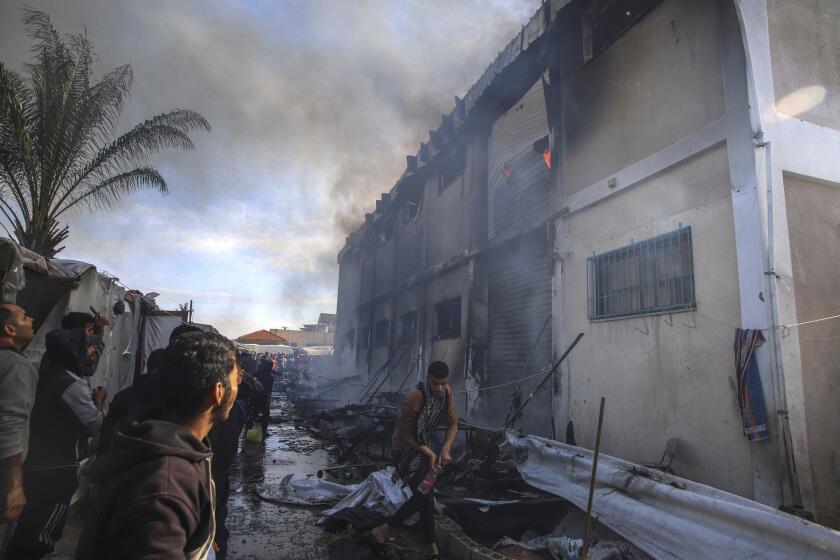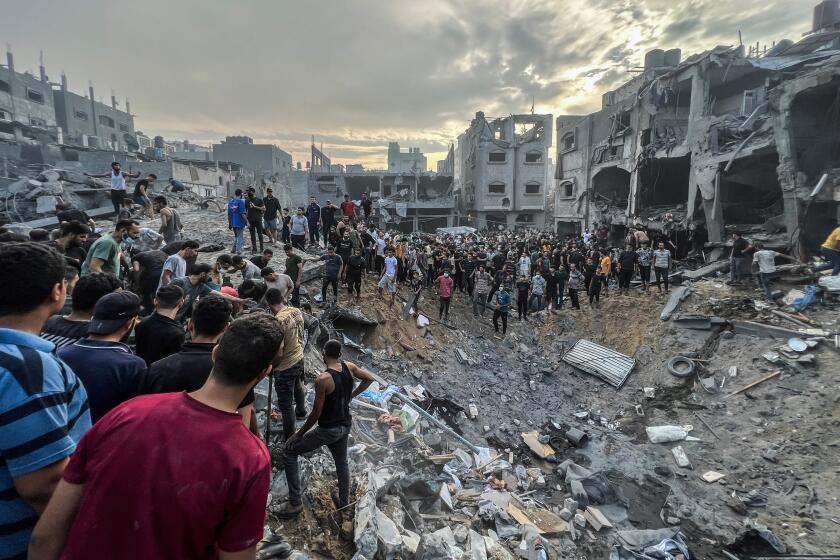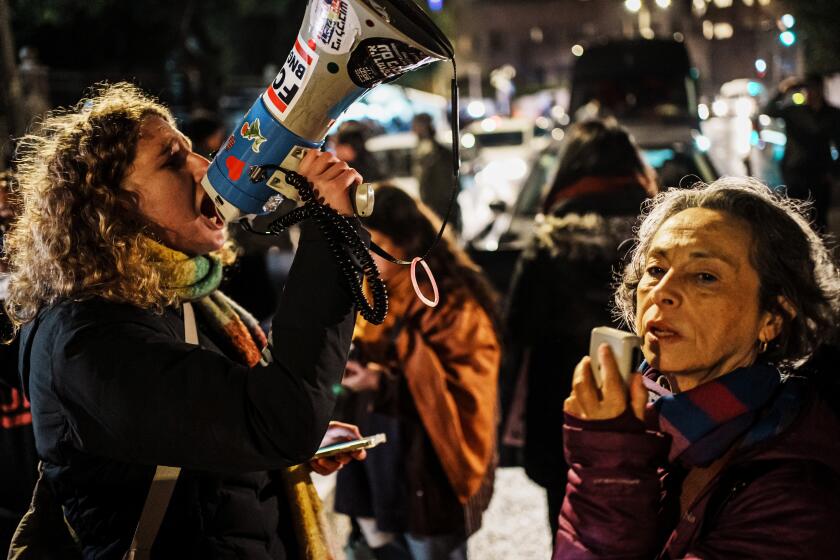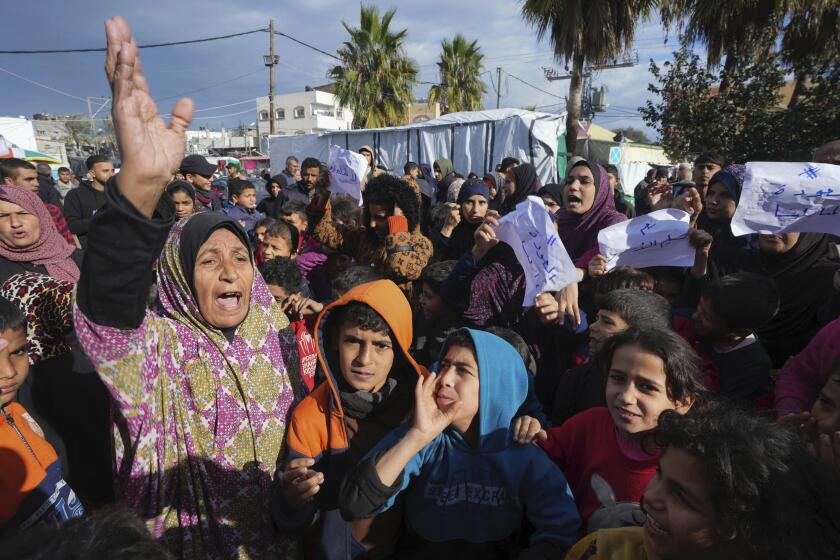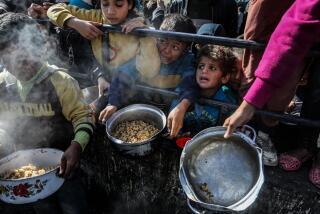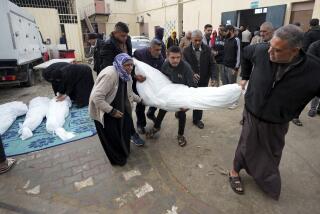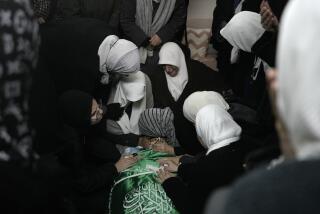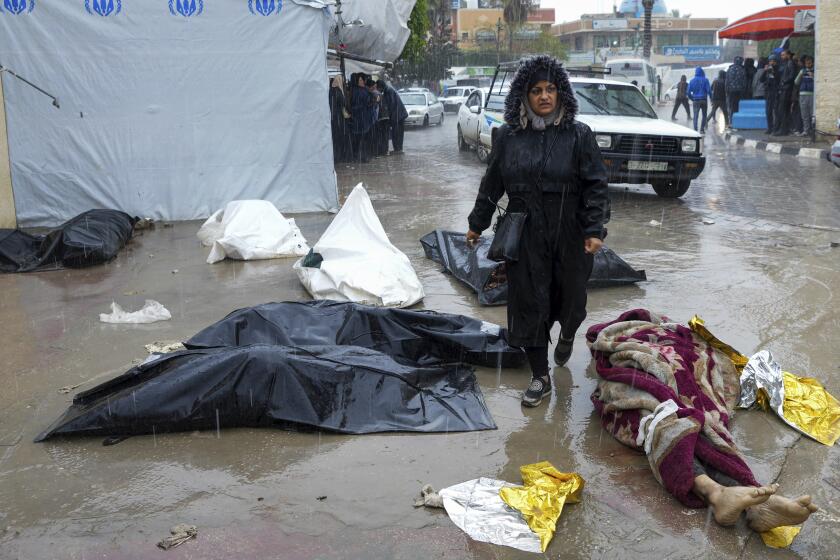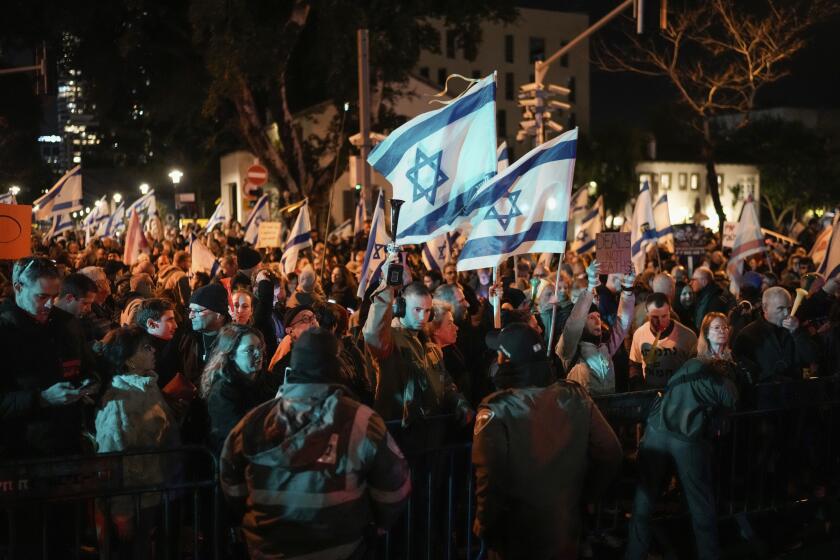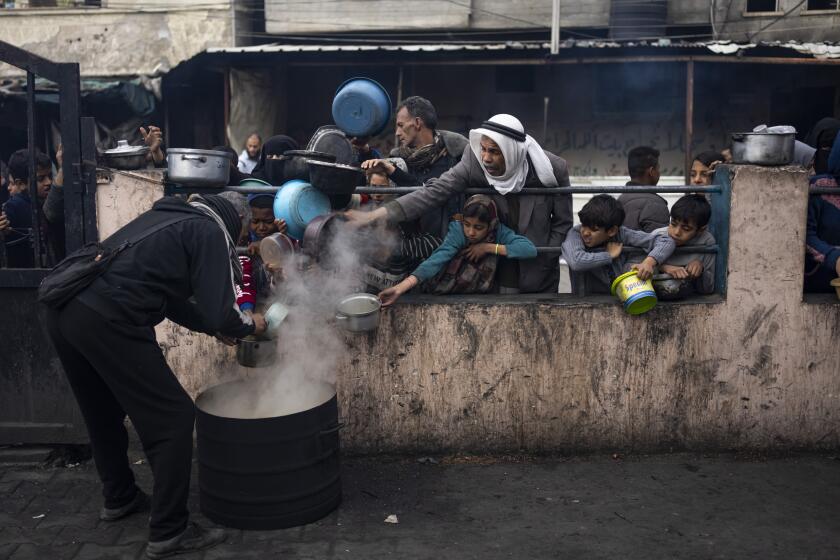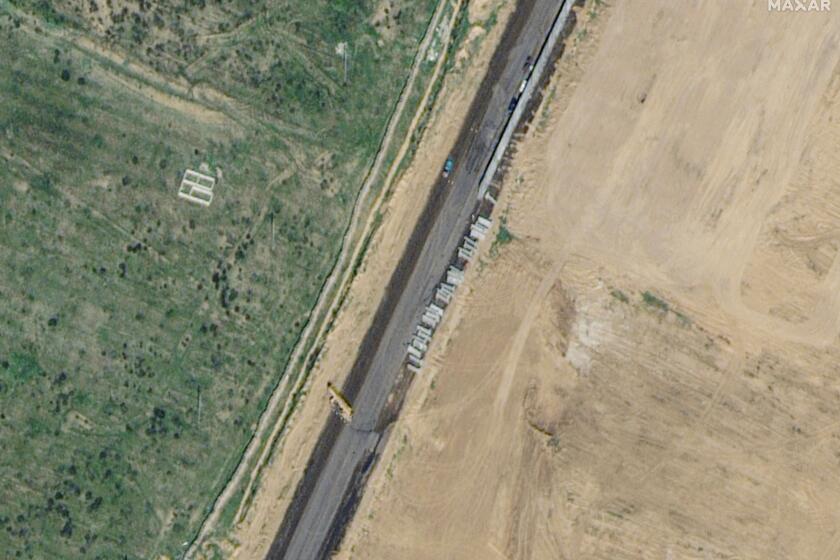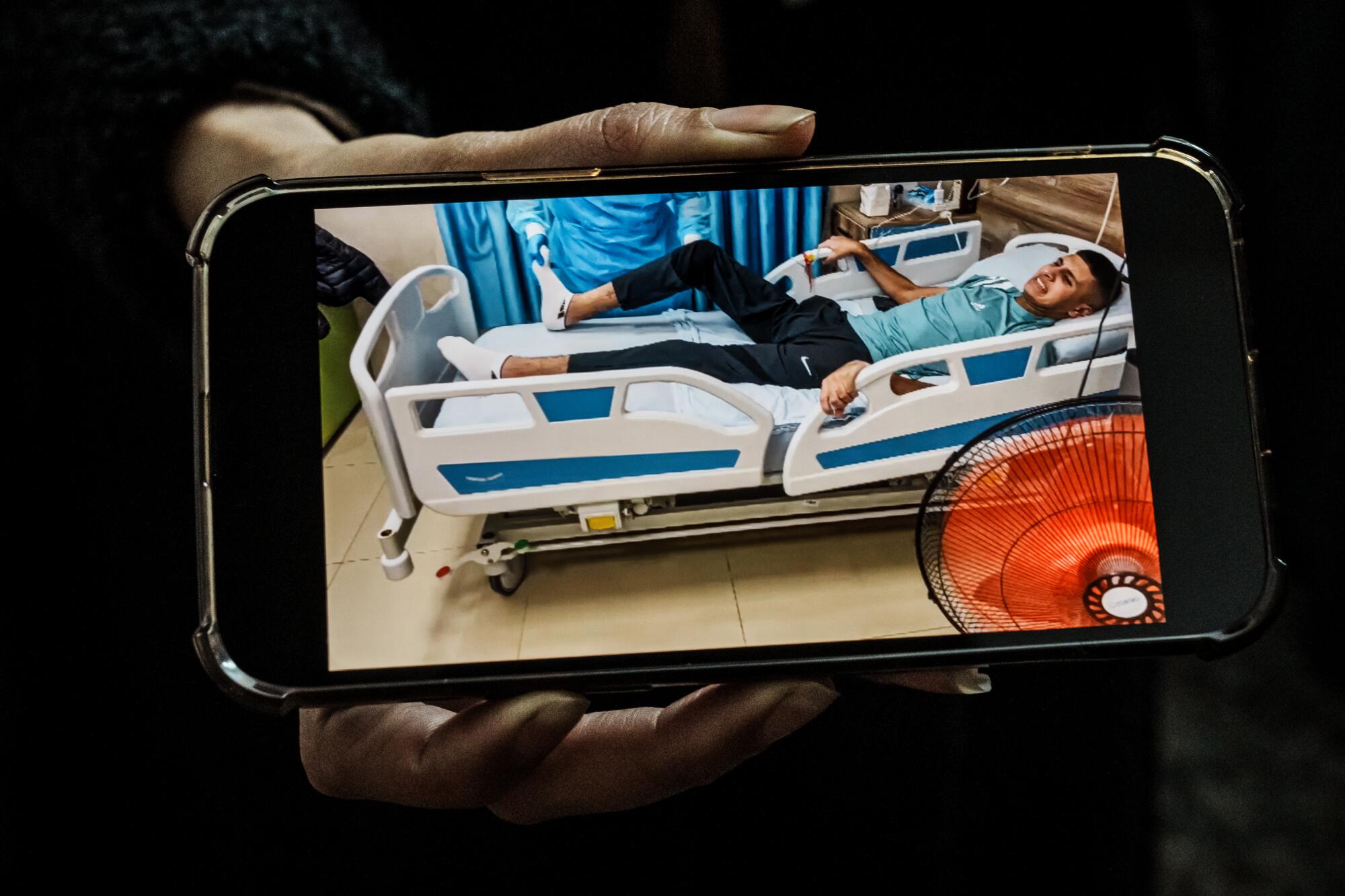
It was still dark out, and many patients at the Ibn Sina hospital in the West Bank were still sleeping, when the hit squad arrived.
Israeli agents disguised as medical staff and patients pulled out rifles, subdued hospital workers and headed for Room 376.
The agents shot and killed the patient there — he had been wounded months earlier in an Israeli airstrike — as well as his brother and a friend.
Israeli authorities said all three were part of a terrorist cell that had taken cover at the medical facility in order to plan an attack. Their families buried them draped in militant flags.
But the raid Tuesday in the embattled city of Jenin has raised new questions about Israel’s war conduct — in particular its willingness to target civilian medical facilities.
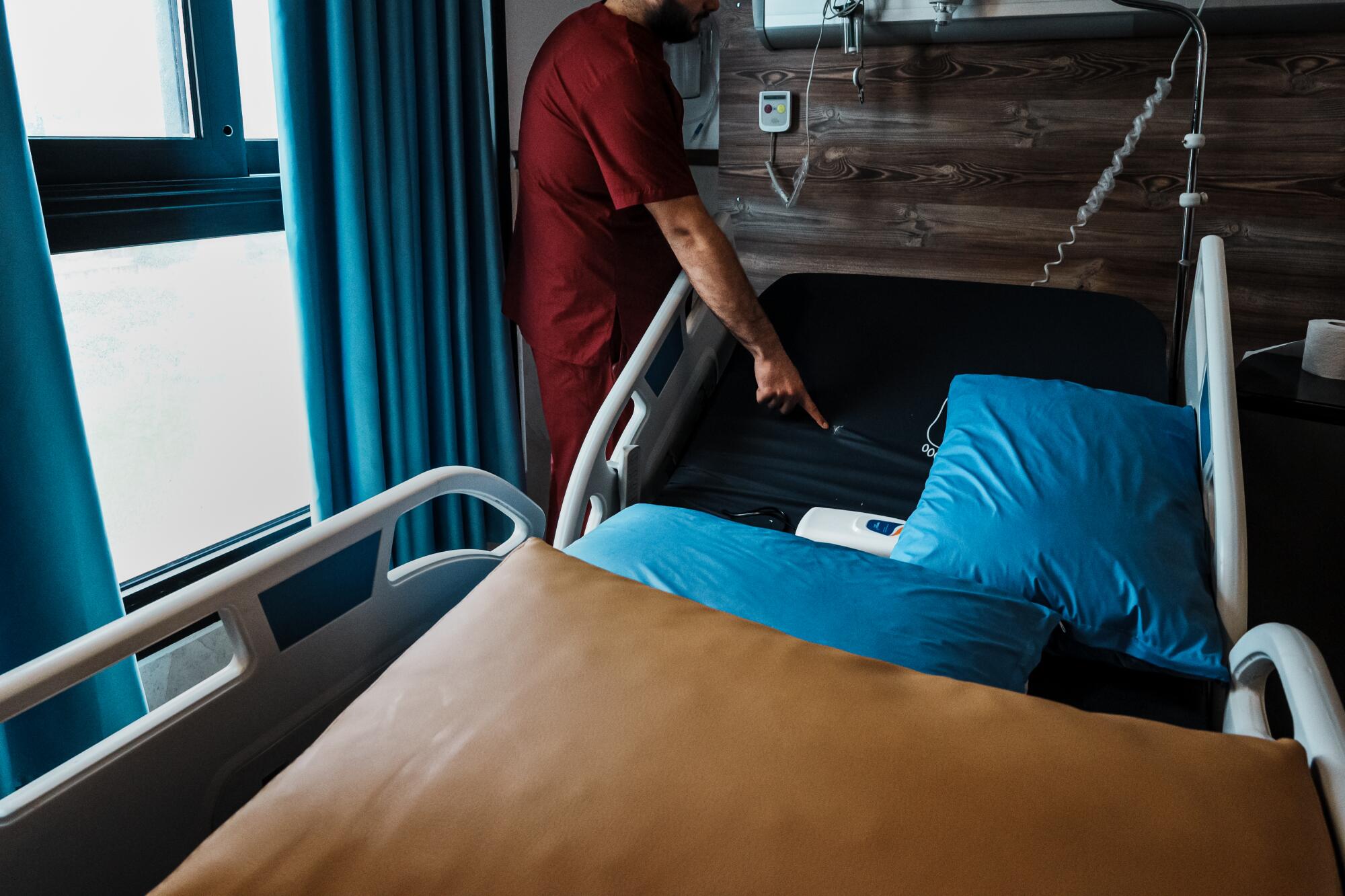
Legal experts said it’s likely that the hospital attack violated international laws governing conduct during war, including one that prohibits combatants from posing as doctors or other civilians, and another that bars the killing of adversaries who have been wounded.
They pointed out too that because Israel may not technically be at war in the West Bank, the killings could be considered extrajudicial assassinations.
“There’s very strong reason to believe this does constitute a war crime and perhaps even a crime against humanity,” said Heidi Matthews, an assistant professor at Osgoode Hall Law School at York University in Toronto.
The International Court of Justice’s ruling comes at an early stage in South Africa’s case alleging that Israel’s actions in Gaza amount to genocide.
Since the war began Oct. 7, when Hamas carried out the worst attack in Israeli history — killing about 1,200, some two-thirds of them civilians, according to Israeli authorities — the United Nations Human Rights Council has identified “clear evidence” of war crimes by both the Israeli military and Hamas.
Israel is already under scrutiny as the International Court of Justice has agreed to hear a case alleging it violated the Genocide Convention in its ongoing assault on the Gaza Strip, where Israel has frequently attacked schools and hospitals in what it says is an attempt to root out Hamas fighters.
Health authorities in Hamas-ruled Gaza say that nearly 27,000 people have been killed there since Oct. 7, most of them civilians.
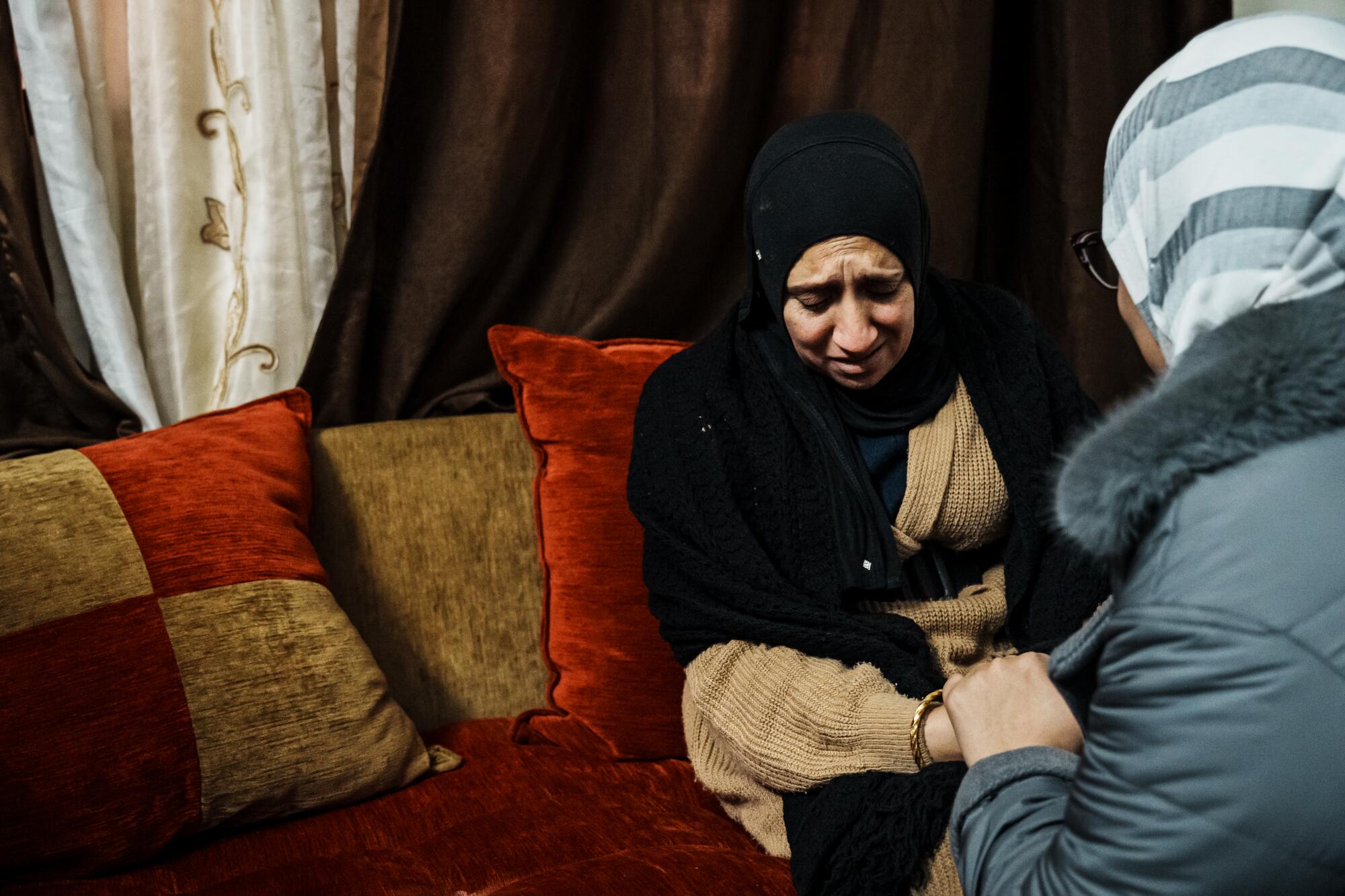
The hospital raid comes amid simmering tensions in the occupied West Bank, where hundreds of Palestinians have been killed by security forces. Palestinians and Israelis alike worry that the fighting in Gaza could spill over here.
Many Israeli counter-terrorism operations have focused on the Jenin refugee camp, a collection of dilapidated buildings and narrow streets crowded onto a hill on the city’s western edge.
The camp was established in 1953 for Palestinians evicted from their homes around the city of Haifa during the 1948 Arab-Israeli war. It now has a population of 22,000 and has become a symbol of Palestinian defiance.
For decades, Israel has viewed the camp as a base for militants and a launchpad for attacks that have killed Israeli soldiers and civilians.
Since Oct. 7, Israeli forces have killed dozens of Palestinians in raids in Jenin, storming the camp in armored vehicles and even carrying out airstrikes.
Airstrikes flatten blocks of Gaza refugee camp, bringing rage, grief and a perilous new phase of war
Israel’s military says it killed a Hamas commander in devastating strikes in Jabaliya refugee camp in Gaza. Hospital chief describes ‘waterfall of casualties.’
For months, local leaders have complained that soldiers have been illegally targeting civilian infrastructure, including medical centers.
It started with 30-minute searches of ambulances trying to reach hospitals, delaying them from entering clash sites to evacuate the wounded. More recently, medical staff say they have been barred at times from accessing hospitals.

“Before, if I were home and there’s a raid, I could drive my car to the hospital, day or night. Now I would be shot,” said Yasser Kilani, who heads the Jenin State Hospital’s emergency department. “Even the ambulance can’t come pick me up.”
The hospital’s director, Wissam Bakr, showed a visiting reporter the facility’s gates, where bullets from nearby clashes had left a rash of divots in the concrete walls. Walking up the stairwell, he pointed to where a sniper round punched through a windowpane.
Tuesday’s raid in a packed hospital ward was a new escalation.
The raid was presumably the work of the Mistaarvim, an Israeli undercover unit whose name translates to “those who disguise themselves as Arabs.” Members of the unit look, speak and dress as Arabs to infiltrate protests and conduct assassinations.
The commandos dressed as doctors, nurses and patients. One was disguised as a woman in a headscarf and holding a bundle meant to look like a baby. Another sat in a wheelchair. When they reached the third floor, they whipped out assault rifles from under their clothes, according to surveillance video. Hospital staff said that there was no exchange of fire, and that the three men in Room 376 were shot in the head with silenced pistols.
More than three months into the Israel-Hamas war, the families of hostages held in Gaza have grown disillusioned with Israel’s military operations.
Bloodstains remained on the ceiling a day later, and bullet holes were visible in two beds and a chair. Other evidence of the attacks had been cleaned up.
Dr. Tawfiq Shobaki, a spokesman for the hospital, said the staff had been treating 18-year-old Basel Ghazawi since October, when an airstrike by Israel caused a spinal injury that left his lower body paralyzed.
“He was critically ill and had a long and complex medical journey ahead of him,” said Shobaki, adding that because Ghazawi required round-the-clock assistance, hospital staff encouraged visitors.
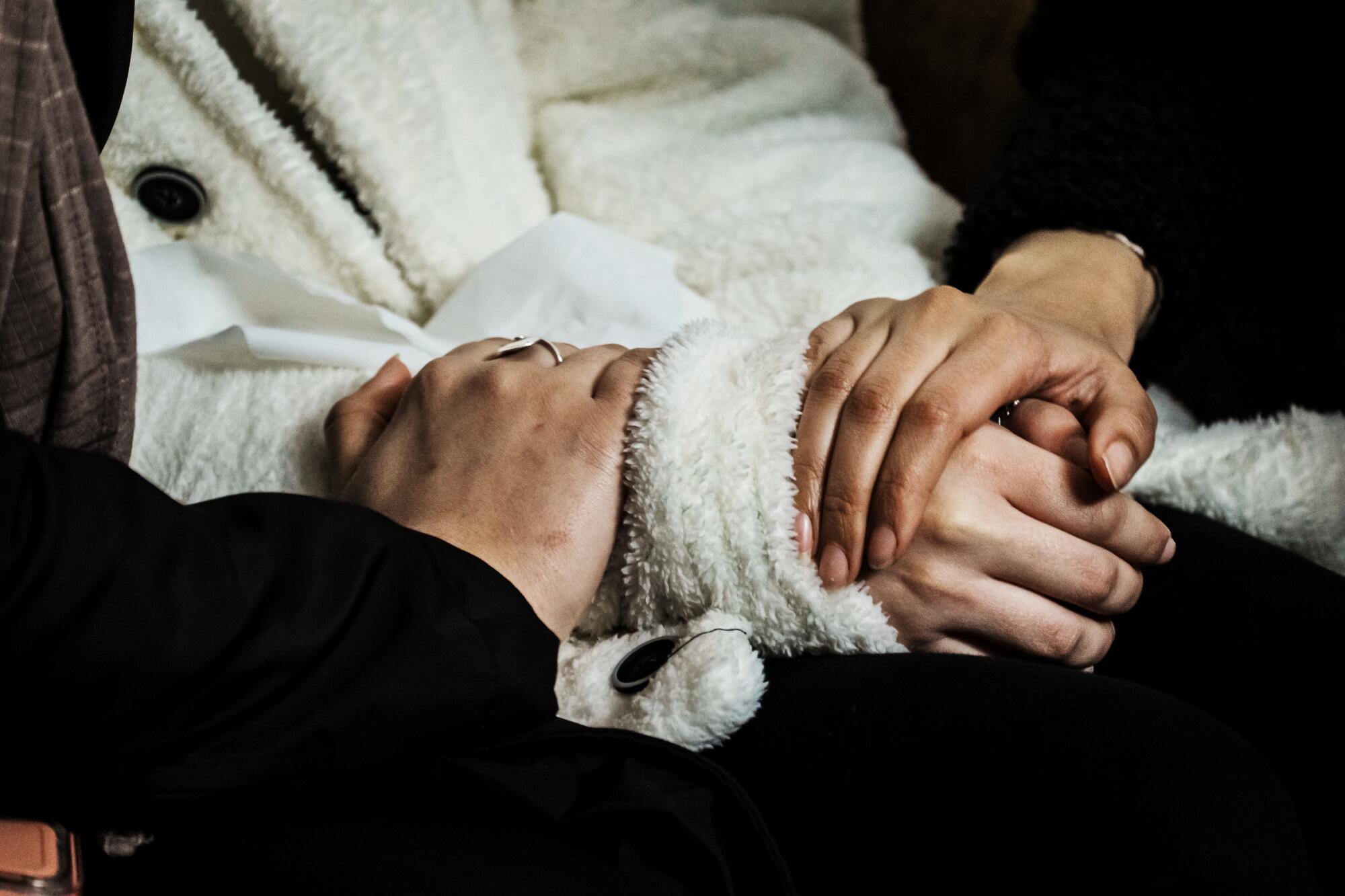
The two other slain men were Ghazawi’s 23-year-old brother, Mohammed, and a friend, 27-year-old Mohammed Jalamneh. Israel said Jalamneh was planning an imminent attack purportedly inspired by Hamas’ Oct. 7 onslaught.
Israel’s military said in a statement that the men were using the hospital as a hide-out, but did not provide more detail.
“For a long time, wanted suspects have been hiding in hospitals and using them as a base for planning terrorist activities and carrying out terror attacks,” it said.
Legal experts said that militants inside a hospital planning attacks could be considered legitimate targets.
But under international humanitarian law, it is illegal for a fighter to pose as a doctor — or any other noncombatant civilian. It is also illegal to kill a combatant who is wounded and incapacitated.
Janina Dill, co-director at Oxford University’s Institute for Ethics, Law and Armed Conflict, described the hospital raid as “quite a graphic and significant challenge to international law.”
“Israel is not, contrary to what it is claiming, fighting by the letter of the law,” she said.
While Gazans hold Israel principally responsible for their suffering, many also blame Hamas for not foreseeing the consequences of its Oct. 7 attack.
The three men killed in the hospital raid were buried the same day.
The following afternoon, Areej Ghazawi, the mother of the brothers, received dozens of mourners at her home. Relatives passed out cups of cardamom-flavored coffee and dates wrapped in foil.
She said her older son had been caring for Basel since he was injured in October.
“They were in the hospital for months,” she said. “My sons were supposed to be in a safe place.”
If Israeli authorities had wanted to detain the men, she said, “they could have arrested them. Why did they shoot them in the head?”
A group of women filed in — nurses who had been caring for Basel at the hospital. One of them held Areej Ghazawi as she sobbed.
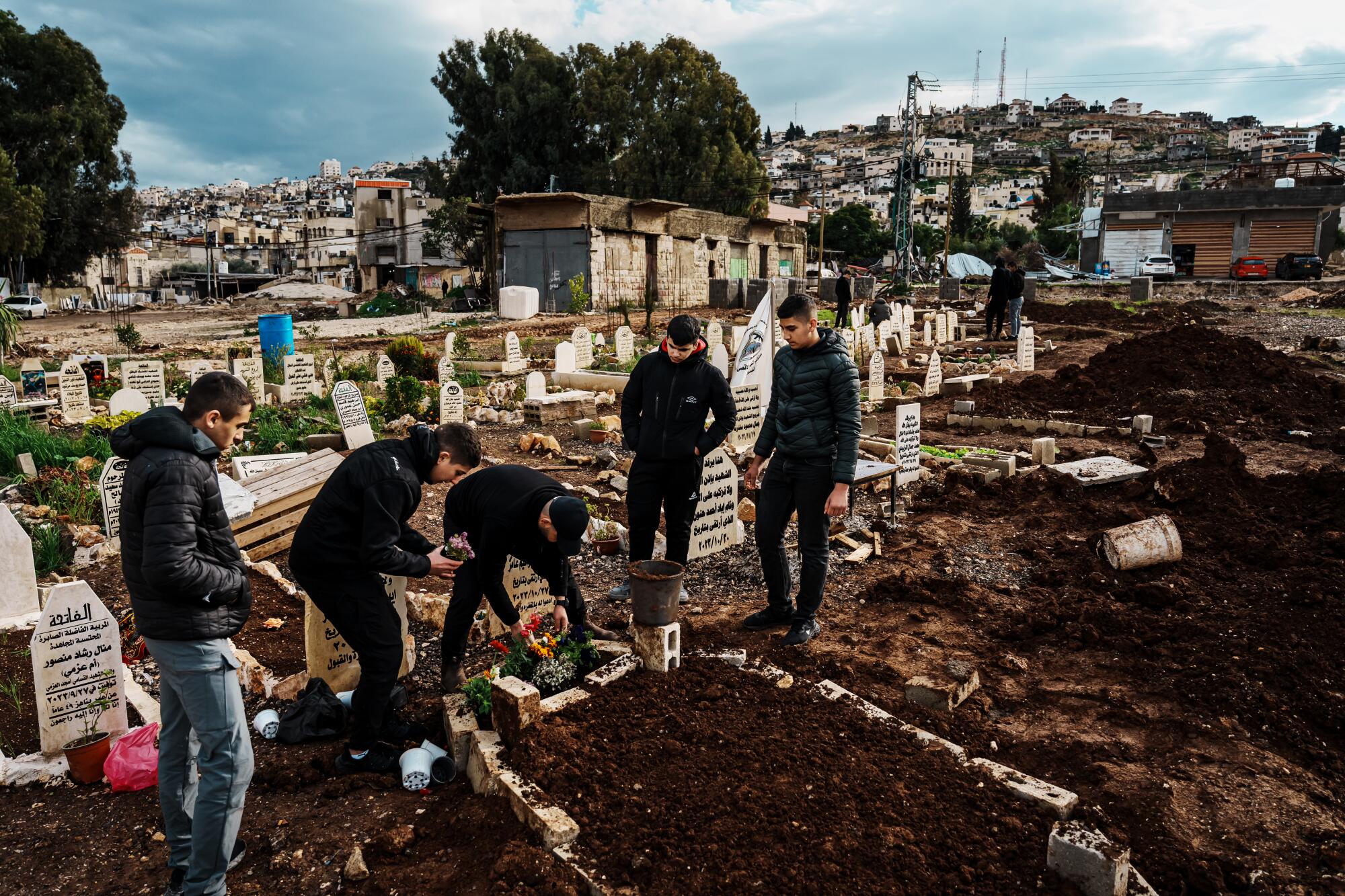
“He was sleeping,” she wailed.
The nurse pulled her closer and said: “They’ll be waiting for you at the entrance of heaven.”
Linthicum reported from Jenin and Bulos from Beirut.
More to Read
Start your day right
Sign up for Essential California for news, features and recommendations from the L.A. Times and beyond in your inbox six days a week.
You may occasionally receive promotional content from the Los Angeles Times.
